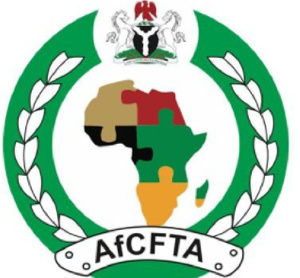 Operationalization of AfCFTA payment platforms is expected to boost trade in Africa
Operationalization of AfCFTA payment platforms is expected to boost trade in Africa
Head of Macroeconomic Research Studies at the ECOWAS Bank for Investment and Development (EBID), Dr. Joseph Kwadwo Asenso, has called for speed in operationalizing the payment platform under the African Continental Free Trade Area (AfCFTA) and ECOWAS Payment and Settlement System (EPSS).
Currently, the Pan African Payment and Settlement System (PAPSS) is being piloted in six African countries and will soon be implemented to boost trade in Africa, and this phase will be completed by December 2021.
Also, there are engagements to establish an ECOWAS Payment and Settlement System (EPSS), which will complement the PAPSS by Africa Union (AU) aimed at promoting monetary and financial integration as well as facilitate intra-community trade in goods and services and realization of the community’s objective of establishing an economic union.
“ECOWAS is also looking at the ECOWAS Payment and Settlement System (EPSS), which will complement the PAPSS by the AU. It is supposed to help buyers and sellers do away with stumbling blocks to trade facilitation. Notwithstanding the absence of payment systems within the sub-region, trades are still being executed; but the problem is that it is costly in terms of actual cash and time.
“That’s why it is necessary for the regional body and sub-regional bodies to speed up and ensure this payment platform is activated soon,” Dr. Asenso said in an interview with B&FT.
Vice President Dr. Mahamudu Bawumia, at the recent Ghana International Trade and Finance Conference, called for the integration of national payment switches across Africa in a bid to reduce the period for integration process on the Pan African Payment and Settlement System (PAPSS).
PAPSS is expected to connect the entire continent and handle instant payments in multiple African currencies and provide a settlement mechanism that creates trust within the ecosystem. This brings two critical changes to Africa’s trade finance: minimizing the use of hard currencies in trade payments, and domesticating payments and settlements within Africa. This, in turn, will help organizations and their financiers manage currency risks better.
The AfCFTA pact connects 1.3 billion people across 55 countries with a combined GDP valued at US$3.4trillion. AfCFTA will significantly boost African trade, particularly intraregional trade in manufacturing. The volume of total exports is expected to increase by almost 29 percent by 2035 relative to the baseline. Intracontinental exports will also increase, by over 81 percent; while exports to non-African countries will rise by 19 percent.